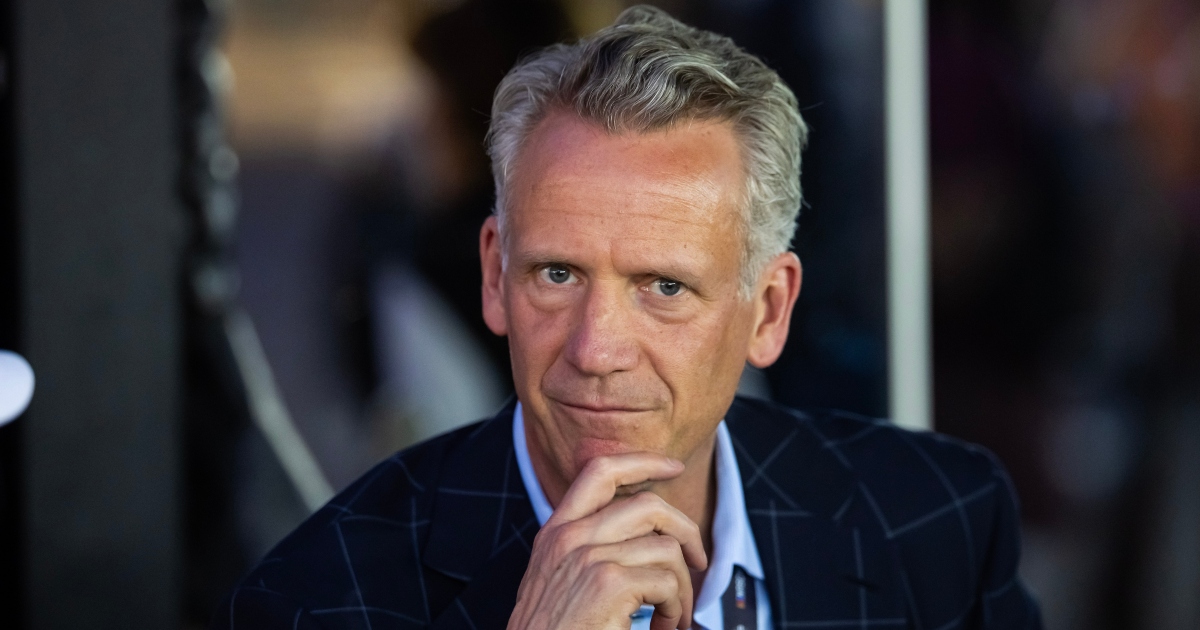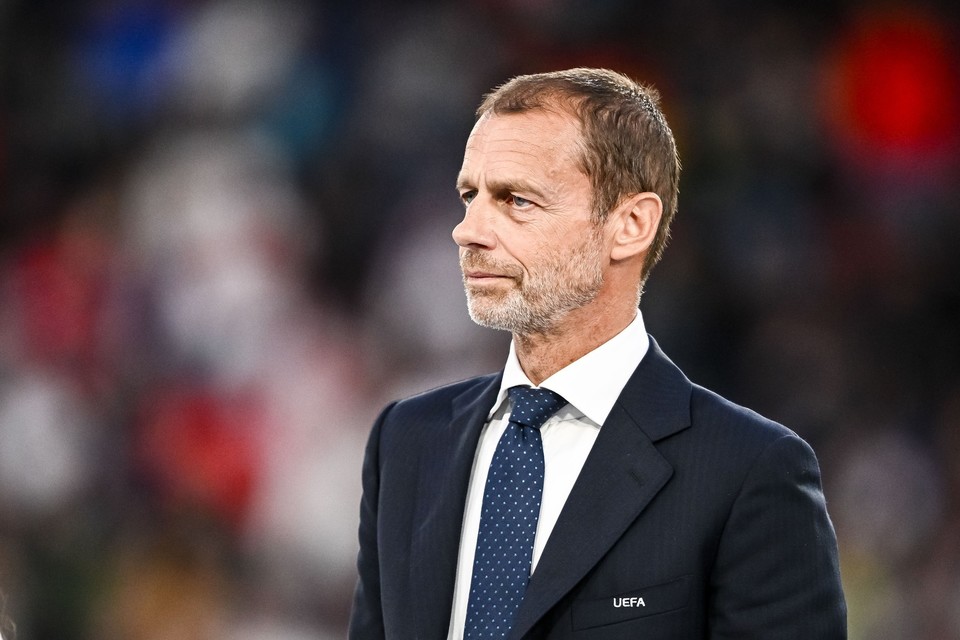Stunning Exit: NASCAR CEO Steve Phelps Abruptly Resigns Amid Mounting Controversy and Industry Upheaval
In a stunning and unexpected turn of events, NASCAR CEO Steve Phelps has resigned from his post, leaving the motorsport world in shock. Phelps, who has been at the helm of NASCAR since 2018, was widely credited with revitalizing the sport during a period of transformation. However, his abrupt departure has sent shockwaves through the industry, raising questions about the future of NASCAR and the reasons behind this dramatic exit.
While details surrounding his resignation remain sparse, sources close to the situation have suggested that growing internal tensions, controversial decisions, and the overall direction of the sport may have contributed to his sudden departure. The resignation comes at a critical time for NASCAR, as the organization faces numerous challenges, including evolving fan expectations, declining viewership, and the ever-changing landscape of motorsports.
The Legacy of Steve Phelps: From Innovator to Resignation
Steve Phelps took over as CEO in 2018 after previously serving in various leadership roles within the organization. His tenure as NASCAR’s top executive saw several initiatives aimed at modernizing the sport and expanding its fan base. Under his leadership, NASCAR pushed for greater inclusivity and diversity within the sport, made efforts to adapt to the digital age, and sought to appeal to a younger audience. Phelps was instrumental in leading NASCAR through the challenges of the COVID-19 pandemic, ensuring the sport continued to operate when many others were forced to shut down.
One of his most significant achievements was the introduction of the Next Gen car in 2022, a new model designed to make racing more competitive and cost-effective for teams. The car has been largely successful in achieving its goals, improving parity on the track and reducing the financial burden on smaller teams.
However, Phelps’ tenure was not without its controversies. His decisions to make significant changes to NASCAR’s schedule, including the introduction of new venues and altering traditional race dates, faced criticism from some long-time fans. Additionally, the increased focus on diversity initiatives, while largely praised, led to backlash from some segments of the fan base who resisted the changes.
Despite these challenges, Phelps was seen as a forward-thinking leader who had the sport’s best interests at heart. His sudden resignation has therefore left many in the industry wondering what could have led to such a drastic decision.
Mounting Controversy and Internal Tensions
The reasons for Steve Phelps’ resignation are still unclear, but several reports suggest that mounting controversy and internal tensions may have played a role. Insiders have hinted at growing disagreements between Phelps and other high-ranking officials within NASCAR over the sport’s direction and future strategy.
One of the key areas of friction was reportedly NASCAR’s relationship with corporate sponsors and media partners. While Phelps worked hard to secure new deals and strengthen existing partnerships, there were disagreements about how the sport should evolve to attract younger fans without alienating its core base. The tension between innovation and tradition has been a recurring theme in NASCAR, and Phelps’ efforts to modernize the sport may have clashed with more conservative voices within the organization.
In addition, Phelps faced criticism for how certain controversies were handled during his tenure. The backlash following NASCAR’s decision to ban the Confederate flag from events in 2020, while widely regarded as a necessary step toward inclusivity, created a divide within the fanbase. Phelps was also at the center of the Bubba Wallace controversy that same year, when a noose was found in Wallace’s garage at Talladega Superspeedway. While an FBI investigation concluded it was not a hate crime, the incident ignited a heated debate within the sport and raised questions about NASCAR’s handling of sensitive issues.
These controversies, coupled with the pressure of leading a sport that has faced declining TV ratings and shrinking attendance in recent years, may have contributed to Phelps’ decision to step down.
Industry Upheaval: What’s Next for NASCAR?
Phelps’ resignation comes at a time of significant upheaval in the motorsport industry. NASCAR has been grappling with several challenges, from maintaining its relevance in a rapidly changing media landscape to attracting a younger and more diverse audience. With viewership for traditional sports declining across the board, NASCAR has struggled to retain its foothold as one of America’s most popular sports.
The introduction of streaming services, social media, and other digital platforms has changed the way fans consume sports, and NASCAR has had to adapt. Phelps was seen as a leader who could guide NASCAR through this transition, but his departure raises uncertainty about the sport’s future strategy. The next CEO will have to balance maintaining the sport’s traditional appeal while continuing to innovate and attract new fans.
In addition to the media landscape, NASCAR is also dealing with the effects of an evolving automotive industry. With the rise of electric vehicles and increasing pressure to reduce carbon emissions, NASCAR has faced questions about its environmental impact. Phelps had begun to explore ways to make the sport more sustainable, but it remains unclear how these initiatives will move forward without his leadership.
A Sport in Transition
Steve Phelps’ resignation marks the end of an era for NASCAR, but it also signals a time of transition for the sport as a whole. As the organization searches for its next leader, it faces the daunting task of navigating a future filled with uncertainty.
The new CEO will inherit a sport that is both rich in history and in need of innovation. They will have to address the controversies that have rocked NASCAR in recent years while finding new ways to engage with a changing fan base. With so many challenges on the horizon, the future of NASCAR will depend on how the organization chooses to move forward in the wake of Phelps’ departure.
For now, the motorsport world watches and waits as one of the most influential figures in NASCAR history steps away, leaving behind a complex legacy filled with both triumphs and controversies.















Leave a Reply